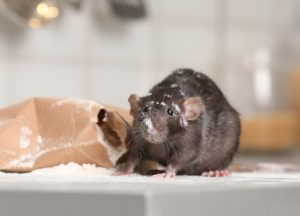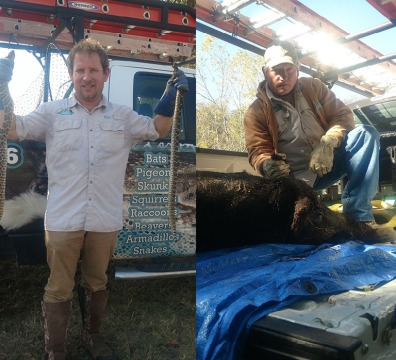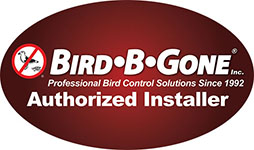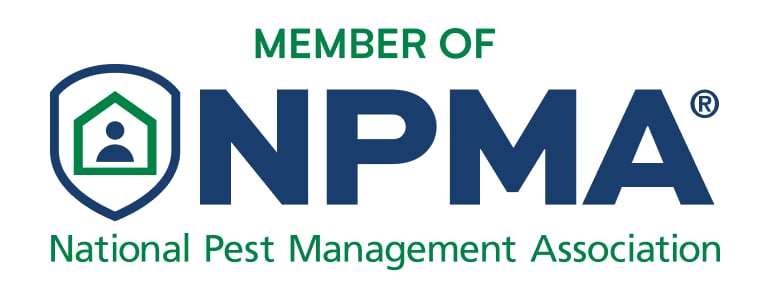A rat infestation is a huge issue that needs to be controlled and must not be ignored. They will certainly cause property destruction by chewing wires, gnawing on pipes, damaging your attic, and they are a big wellness danger due to the scat they leave all over and because of the diseases that they can transmit through their bite.
Rat borne disease spread in the house
The principal vector for rat borne disease transmission to people is through rat droppings. Austin Rats do not have an extremely civil sense of waste elimination. They are out of control! They do not think about your preferences when they pick where to utilize the bathroom. The unfortunate result is, that they often do so all over your house. This consists of places like your attic, counter tops, storage rooms, underneath furniture, inside walls and vents. Any time feces collects from any kind of sort of animal, the risk of disease transmission to humans and family pets skyrockets.
Rats Transmit Hantavirus
Rats can transmit the very infectious infection called the hantavirus. This illness can be passed to humans when they enter contact with rat droppings, urine, or nesting materials. This risk makes it crucial to control your rat infestation. If you venture in to a rat infested attic and mingle with animal waste, or you have a water leak that spreads through rat urine or droppings, the hantavirus can come to be aerosolized and enter your lungs with the oxygen you take in.
The hantavirus symptoms look like that of the typical flu virus: fever, muscle ache, exhaustion, impaired breathing, chills, and so on. There is no well-known remedy for the hantavirus, and signs and symptoms need to pass normally. If you catch the virus in this manner, it is necessary to control access to yourself from family and friends until the contagious period can pass (usually around 2 weeks).
Damage and Hazards cause by Rats in Austin, TX
Rats cause all sorts of damage to your home. They have no problem tearing open your roof covering, sheet-rock, and insulation. They do this because they are seeking food to eat, water to drink, and risk-free and comfy areas to sleep. Rats also have teeth that continue to grow throughout the course of their lives, so they really need to grind them down. Below are the primary sorts of damage and risk that they cause
- Chew through pipes: Like various types of rodents, a Rat’s front teeth never stop growing. Rats will chew on metal pipes to grind their teeth down, and through PVC pipelines to access water from the line. A control program decreases this risk.
- Water leaks: If you fail to control a rodent infestation, it’s not a surprise that you may have a leaky pipe or a full blow damp spot forming in your house.
- Chew through wires: Wires are another vulnerable target for Rats with teething issues.
- Fire Risk: When rats chew through wires, you run a high risk of fire from shorts.
Rodent Entry Points in to your Home
A Rat has ribs that hinge at the spinal column, making them collapsible. This means it can stuff itself through a hole with a half inch radius. Even if the hole is quite little, rats native to Texas are natural chewers and will broaden little holes until they are big enough to welcome all sorts of wildlife inside. They have really sharp teeth and do not mind using them to make their entry ways much more accessible
Were you aware Rats can climb nearly all rough surfaces? That means they can gain entry to your house from well above ground level.
One of the most common entry points that we see throughout a control program are A/C tubing exhaust gaps in your houses exterior siding. We also see a great deal of rats enter through the roof and eve areas, making it really simple for them to pop right into your attic. Garage doors a big issue, as they are not secured nearly as well as typical doors into your house.
It’s also important to check out outside control issues, like gaps in your foundation, holes in pipes, and loosened screens. DIY home repair work and upgrades can often introduce openings that wildlife are eager to exploit.
Rodent Behavior
Austin area Rats and rodents have various preferences, but you need to understand that they are all omnivorous (meaning they will certainly eat both plants and animals) when they are hungry. Rat teeth continue to grow until the animal passes away, so it is very important for them to on a regular basis grind their teeth to control the growth. If you hear clawing or gnawing sounds during the night, this is most likely the reason. Because of this, rats have a high capacity for causing substantial property damage.
Rats and mice have a tendency to be nocturnal, unless their environment becomes stressful. A risk of starvation or a predator could make rats active throughout the day. Rats enjoy all sorts of environments, including ground burrows, trees and dense vegetation, damp sewer lines, and also inside attics.
Rats native to Austin are generally very frightened of humans, and they are smart enough to stay out of view, and do their best to stay out of mind. They have an exceptional sense of smell that will tell them when prospective predators are nearby, so they are normally well out of site just before you walk into a room. Because of this, you are unlikely to capture them red handed trashing your things.
Austin Rat Control Procedure: Here are the steps
1. Evaluation
The most integral part of a rodent control program is the assessment. Our Rodent Control team makes certain to do a comprehensive examination of your house. Our task is to recognize just how precisely these rats and mice have been obtaining entry to begin with. We check your attic, roofing system, pipes, structure and outside walls for gaps and holes that your rodents could be sneaking through. We also make sure to check close-by trees, shrubs, and posts that rats and rodents could climb to get roof access. As soon as we see these risk factors and entry points, we have a good idea of where rodents have entered your home and made their nests.
2. Rat and Mice Exclusion
Now that our control team has actually located the hotspots and entry points, we understand specifically how your rodents have been getting in and out of your house. Before we take any type of extermination action, it’s crucial that your rodent control team seals these holes and openings. One of the most effective options is to utilize steel wire mesh. This mesh permits vital openings like vents to stay open, but has small enough holes to control wildlife access. The mesh we make use of is constructed out of solid, galvanized steel so rodents can not chew through it.
3. Rat Extermination and Removal
Since we’ve ensured that new rats and mice can not enter, it’s time to go on to the main control method. There are no techniques that are both efficient and completely humane to deal with a rodent control problem, so we employ the use of snap traps to quickly and promptly take care of an indoor Rat issue. We have spent a number of years developing our trapping and control skills, so we know the most effective methods, sites for traps, and the correct bait to use. We stick to all state laws in Texas when it comes to Rat extermination.
We completely reject to utilize poisons to control a rat population, especially inside your home. It’s never ever a good strategy to introduce poisonous substance control into an environment that you, your loved ones, and family pets live in. It is an entirely unnecessary risk! Also, many poisons cause rats and rodents to search frantically for water before they dehydrate. This will place your water lines in major danger.
4. Rat & Rodent Feces Decontamination
If your control program achieves success, your rodents are gone, however the danger is not. Rat waste is a substantial vector for disease transfer to humans. It is also just plain gross! Rodent pee, droppings, and nesting materials really need to be properly and securely eliminated and sanitized. If we missed this step, you would have a biological time bomb sitting in your attic, inside your walls, or in your cellar. We utilize personal protective equipment and special chemicals to appropriately sanitize your home after an infestation has been cleared up.
5. Rat Destruction Repair
It’s most likely that your rats did a number on your home. They may have trashed your insulation, harmed your pipelines, chewed through your wires, or harmed your HVAC system. Our AAAC Wildlife Removal pros are also extremely well trained and talented at wildlife damage repair. We will certainly return your home to like new condition!









